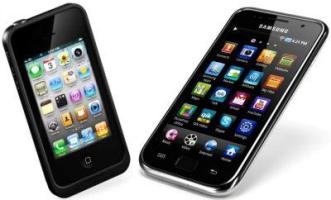Apple, Samsung Deliver Final Rebuttals In $2.5bn Patent Case

Apple and Samsung have delivered rebuttals to witnesses’ claims as the companies head into the final stages of their patent trial
Both sides have finished presenting evidence in the patent infringement trial of Apple versus Samsung over the technology in each company’s smartphones and tablet computers.
The feuding tech companies are expected to make closing arguments on 21 August before the jury in US District Court in San Jose, California begins its deliberations the next day. In the final day of testimony on 17 August, both sides presented rebuttal witnesses to bolster their cases in which the adversaries accused each other of patent infringement.
Marketplace ‘confusion’
Apple brought suit against Samsung, claiming $2.5 billion (£1.6bn) in damages on its assertions that Samsung copied design features of its iPhone smartphone and iPad tablet computer in its own products.
 Philip Schiller, the senior vice president of worldwide marketing at Apple, testified earlier in the trial that Samsung “has ripped off a number of our design elements” and that such copying has caused confusion in the marketplace and cut into sales of iPhones and iPads.
Philip Schiller, the senior vice president of worldwide marketing at Apple, testified earlier in the trial that Samsung “has ripped off a number of our design elements” and that such copying has caused confusion in the marketplace and cut into sales of iPhones and iPads.
Apple also introduced into evidence a 132-page Samsung internal report that compared the iPhone with Samsung’s smartphone. The report found that Samsung’s models lacked features that were in the iPhone and Apple’s lawyers argued that this showed that Samsung’s goal was to copy the iPhone.
But Samsung turned the tables on Apple when presenting its defence, claiming that Apple infringed on Samsung patents in the design of it products. It also challenged the validity of Apple patents as based on technology that already existed, which is called “prior art” in patent law terminology. In fact, at many times throughout the trial, each company characterised their technology as unique and the other’s as prior art.
Testimony on 17 August focused on Samsung’s assertion that Apple had copied Samsung’s patented technology for connecting a smartphone to a cellular network.
Later Apple brought to the stand Michael Walker, a British telecommunications expert who has served on the European Telecommunications Standards Institute (ETSI), which sets industry protocols there.
Walker said Samsung failed to disclose to the ETSI patents it held for the cell utility technology and Apple argues that Samsung forfeited its patent rights by failing to do so. Samsung argued, however, that the technology at issue fell outside the purview of the ETSI.
Prior art
Samsung also challenged the validity of Apple’s patents, presenting a tablet computer developed as far back as 1994 as evidence that the Apple iPad introduced in 2010 was based on prior art. Apple has rebutted that testimony by arguing that the iPad is significantly more sophisticated than that earlier device.
“I see them as very different,” Apple designer Peter Bressler testified. After attorneys for both sides present their closing arguments on 17 April, US District Judge Lucy Koh is scheduled to instruct the jury on the relevant law before deliberations begin. However, she has publicly urged both sides to consider settling the case because she said both sides have presented evidence that the other company infringed on their patents.
How well do you know your webcam? Take our quiz.